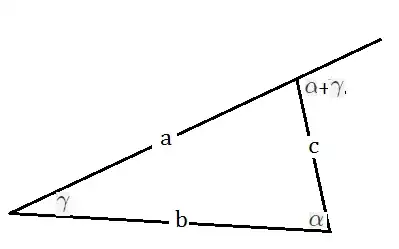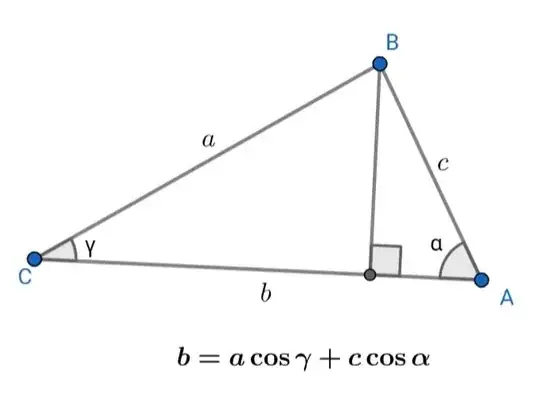How to eliminate $\alpha$ from the Law of Sines of plane trigonometry
$$ \dfrac{a}{\sin \alpha}= \dfrac{c}{\sin \gamma} =\dfrac{b}{\sin (\gamma+\alpha)} =2R $$
in order to arrive at the Law of Cosines
$$ c^2= a^2+b^2-2 a b \cos \gamma \;?$$
Starting to isolate $\alpha$
$$ \alpha =\sin^{-1}\big(\dfrac{b-c}{2R} +\sin \gamma \big)-\gamma$$
$$ =\sin^{-1}( b \sin \gamma/c) -\gamma$$
involve $c$ that we are finding and so on, how best to simplify?

